#angelica church to alexander hamilton
Text


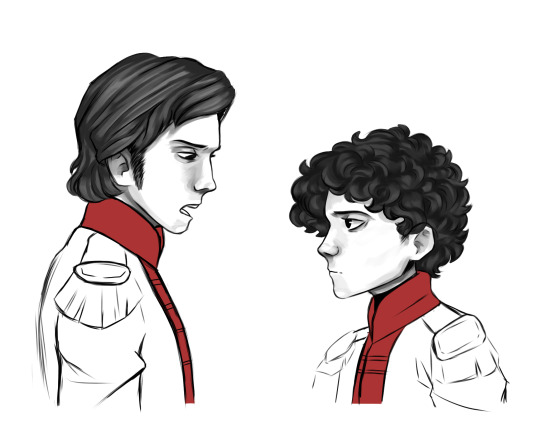
Been in a doodling mood

#amrev#american history#john church hamilton#philip hamilton#james alexander hamilton#angelica hamilton#theodosia burr alston#theodosia burr jr#hamilchildren#hamilton children#hamilkids#hamilton kids#hamilton family#my art#art
119 notes
·
View notes
Text
hamliza but little women au where alexander is the rich boy who gets to live recklessly, angelica is his best friend, and eliza is the sister he actually loves and ends up with WHO SAID THAT-
#i love this au because it flips some things but keeps the key components -> alex finding a family in the schuylers even if he's rich#i know this is veering towards angelica x hamilton which i don't personally think was likely for the historical figures#but they were delighted with each other so if he didn't meet eliza first and angelica wasn't married who knows right?#anyways hamliza endgame#unfortunately my fav problematic 18th century couple#trying to figure out laurens in all of this aoiehfihoaf#sorry my boy there will be a lams version to this trust#alexander hamilton#angelica schuyler church#amrev#hamliza
9 notes
·
View notes
Text
Hamilton and his weight?
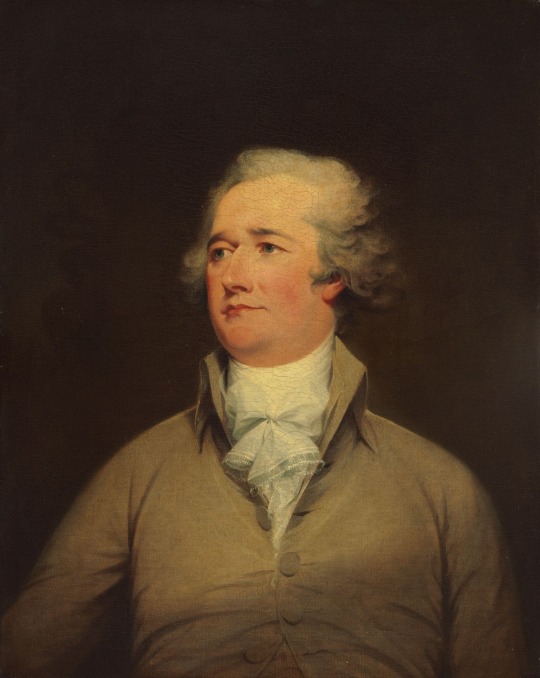
I'm sure you all know this portrait of Hamilton, but this one is different from the others, we can see. Hamilton looks different and fatter than in the other portraits. Some people thought that it was a mistake of a painter, but you coudn't be more wrong!
I was thinking about this and it didn't give me peace of mind, so I decided to look for something about it!
This is the portrait of Hamilton drawn by John Trumbull in 1792. In this period of time as you all may know Hamilton had many troubles and work, so he had a lot of stress and a lot of sitting activities, less of the movement and late suppers, so he really gained weight in this time. It is noticeable on the portrait, and it isn't the mistake made by the painter, but it is a true image of Hammy in the 1790's!
A lot of people knew about it and Hamilton's weight gain became the international news. Someone told this to Angelica Church who was at this time in London, and she wrote to Eliza that she had to care about Hamilton and his lifestyle. (I'm sorry this isn't here, but I tried to find the letter, but i came across only a few words form it)
Poor Hammy, who was so sensitive about his appearance. :(
https://www.nga.gov/collection/art-object-page.41579.html
The link to the portrait :)
#alexander hamilton#18th century#amrev#historical hamilton#Alexander Hamilton in the 1792#hamliza#angelica church#elizabeth hamilton
8 notes
·
View notes
Text
Even back in the 18th century, people misused the word "literally." Here, Hamilton is saying that he and Eliza actually ATE Angelica's letters.

8 notes
·
View notes
Text




MODERN INSTAGRAM AU>> Hamilton >> The Women of Hamilton
#hamilton#eliza hamilton#eliza schuyler#elizabeth hamilton#angelica schuyler#angelica schuyler church#peggy schuyler#maria reynolds#hamilton family#alexander hamilton#hamilton musical#hamilton the musical#eliza schuyler hamilton#instagram au#modern au#historyedit#history#this was ment to be the entire cast but the men are so hard to do and it has been in my drats for like two years so here you go
132 notes
·
View notes
Text
Hot take: Angelica Schuyler is a bad sister in the musical🫣
In the musical to clarify! Irl I don’t think she was quite as bad and even though her and Alexander had a close relationship and maybe Angelica did have some sort of crush on Alexander but she was also very much in love with her own husband and there isn’t any evidence whatsoever for an actual affair. Some people said that she saw him as more of a brother but honestly no one knows for sure.
In the musical she goes on and on about protecting her sister and making sure her she has a good life but then goes onto having some sort of an affair with her husband and flirts with him at any chance she gets but then as soon as it comes to The Reynolds Affair coming out she’s suddenly by her side completely, she’s sort of a hypocrite. I know she means well but as a younger sister I know that if my older sister did that to me i would not forgive her or my husband for that matter. Obviously Alex is in the wrong here too in the musical but a lot of people already know that and dislike him for the way he treated Eliza unlike Angelica who they seem to completely idolise and love despite her also going behind Eliza’s back as well.
#amrev#american history#alexander hamilton#american revolution#alexander hamilshit#eliza schuyler#angelica schuyler#Angelica schuyler church#John church#hamilton musical
9 notes
·
View notes
Text
angelica schuyler telling her sister and alexander whom she was in love with that she’s getting married to a wealthy man and moving to london and kate sharma telling anthony that she’s moving to india

#hamilton the musical#angelica schuyler church#alexander hamilton#hamgelica#kate sharma#antony bridgerton#kanthony#i don’t go here but I see what I see#memes
27 notes
·
View notes
Note
Did Lafayette meet the Schuyler sisters during his 1777-1778 time in New York?
Hello Anon,
it appears so. La Fayette was in Albany to plan an Invasion into Canada, which was later aborted. In this context he met General Schuyler for the first time in person whom he previously only knew by reputation.
He wrote in his Memoirs:
He also became well acquainted with Schuyler, Gates’s predecessor. Disgraced like St. Clair, Schuyler still served the cause and was very useful because of his superior intellect, his presence in that part of the country, and the confidence that the state of New York, of which he is a citizen, had in him. (…) A little later, Schuyler and Duane, commissioners for Indian affairs, scheduled a general assembly at Johnstown on the Mohawk River. Recalling the Indians’ former attachment to the French, M. de Lafayette went there by sled to show himself to these nations that the English had tried to raise against him.
Idzerda Stanley J. et al., editors, Lafayette in the Age of the American Revolution: Selected Letters and Papers, 1776–1790, Volume 1, December 7, 1776–March 30, 1778, Cornell University Press, 1977, p. 246-247.
While La Fayette never anywhere explicitly states that he met the Generals children, it is very safe to assume that Schuyler invited the prominent Marquis over for dinner of the like. Most of the children still lived at home but Angelica Schuyler, the oldest of the sisters, had recently married John Baker Church (June 23, 1777). General Schuyler was not at all happy with her choice of husband and since the couple had eloped, I do not think that she was often at home during this time.
La Fayette also met Elizabeth Schuyler, later Elizabeth Hamilton, during the army’s winter encampment in Morristown in 1779/1780. Eliza was staying with one of her uncles who was a doctor in the army and lived close by. The Marquis was not able to make it to the Hamilton’s wedding, but he always took great interest in Hamilton’s in-laws, often referring to them in letters just like here in a letter from December 9, 1780:
I Beg, my dear hamilton, you will present my Best Respects to your Lady, Miss Schuyller, Miss Peggy and all the family. My Compliments wait on Gel Schuyller. Adieu
“To Alexander Hamilton from Marquis de Lafayette, 9 December 1780,” Founders Online, National Archives, [Original source: The Papers of Alexander Hamilton, vol. 2, 1779–1781, ed. Harold C. Syrett. New York: Columbia University Press, 1961, pp. 518–521.] (01/16/2023)
He also had extensive contact with Angelica Schuyler Church between 1783 and 1785 when the Church’s lived in Paris.
I hope you have/had a lovely day!
#ask me anything#anon#marquis de lafayette#la fayette#french history#american history#american revolution#alexander hamilton#philip schuyler#angelica schuyler church#john baker church#letter#1777#1778#1780#founders online
20 notes
·
View notes
Text
My Children and Their Birth Dates
Phillip - 22 January, 1782
Angelica - 25 September, 1784
Alexander Jr. - 16 May, 1786
James Alexander - 14 April, 1788
John Church - 22 August, 1792
William Stephen - 4 August, 1797
Eliza - 20 November, 1799
Phillip "Little Phil" - 1 June, 1802
We also raised Frances "Fanny" Antill, an orphan who lived with us for ten years starting in 1787 (she was two years old). Alexander and I had 9 children, including the ten years Fanny was with us.
#eliza hamilton#alexander hamilton#18th century#history#family#children#birthdays#phillip hamilton#angelica hamilton#alexander hamilton jr.#james alexander hamilton#john church hamilton#william stephen hamilton#eliza hamilton holly#little phil hamilton#fanny antill
9 notes
·
View notes
Text
all of the hamilton children for @thereallvrb0y
this post is my personal FUCK YOU to alexander hamilton for having so many kids. fucking whore. not eliza though, she's a miracle.
also apparently these historical figures are too obscure for my regular secondary sources, so i had to use peoplepill.com for like all of these, besides like. two. also @yr-obedt-cicero 's posts have helped so much i cannot thank you enough bestie
okay here we go
Philip Sr.
Philip Hamilton (the First) was born January 22, 1782 in Albany, New York. He was sent to Trenton Boarding School at nine, and later joined Colombia College. He went on to study law. Robert Troup described Philip as "a sad rake and I have serious doubts whether he would ever be an honour to his family or his country," which is tough talk for a guy who was gay for his dad. Other than this, people described him as having a lot of potential.
Apparently, he was one of Hamilton's favorites, if not the favorite. As the eldest, he was responsible for carrying on the family name, and was therefore the most "valuable". Hamilton was heavily strict on him, possibly because Philip had rebellious tendencies, but he was nevertheless a good student. I also wanted to include these two letters, this one from Alexander to Philip and this one from their dad to both Philip and Alexander Jr.
In 1797, Philip became deathly ill, but was cured by David Hosack.
After the whole political clusterfuck that was the year 1800, George Eacker decided that Alexander Hamilton was a piece of shit, and he was right, but Philip got pissed and called him a bitch, basically. Eacker insulted Philip and his friend in return and Philip challenged him to a duel because men never learn. Philip was fatally wounded in the duel, an Lin-Manuel Miranda decided to take this personally.
Alexander was so distraught by Philip's death that he had to be held up by two men at his funeral. He became much more religious after his death, and it's really the only part of his life that I think he genuinely believed in god.
Philip was buried in Trinity Church Cemetery with his parents.
Angelica <3
@yr-obedt-cicero made an amazing post on Angelica, which goes much more in detail than I will, as to not be redundant. thank you again <333
Angelica was born on September 25, 1784 in New York City. She was described as sensitive, lively, and fond of music and dance.
She studied French and practiced the harpsichord, which she was gifted by her aunt, Angelica Church. Her and her father would sing together as she played the harpsichord. They were very close and ow.
After her older brother's death, she entered a very poor mental state, described as "eternal childhood" and she couldn't recognize family members (this symptom could have just been after Hamilton's death, but sources vary), also speaking of Philip as if he was still alive. Her family dedicated a lot of time to her health, but her condition worsened, and she spent the rest of her life under the care of Dr. MacDonald.
She died on February 6, 1857 at the age of 72. She was buried at Sleepy Hollow Cemetery in Tarrytown, New York.
Alexander Jr.
Alexander Jr. (who I am going to call AJ bc it's easier and I think it's cute) was born on May 16, 1786. He attended a boarding school in Trenton at 8, then joined Philip studying with William Frazer.
Like his brother, he later attended Columbia College, and graduated in 1804, several weeks after his father's fatal duel. Sources also vary on this, with the St. Andrew's Society of New York (which AJ belonged to) he "did not graduate on account of an accident" so idk. Either way, he started to study law not long after.
He was invited to be an apprentice attorney in Stephen Higginson's Boston law firm, then was admitted to practice law.
He sailed to Spain in 1811 or 1812. He joined the Duke of Wellington's forces fighting Napoleon in Portugal. He returned to America to serve in the War of 1812. He was commissioned as Captain of the 41st Regiment of Infantry in the United States Army in August 1813, though doesn't appear to have seen active service. He went on to serve as an aide-de-camp to General Morgan Lewis in 1812 until June 15, 1815.
He resumed his law practice after his military career ended, and married Eliza P. Knox in 1817. He took office in July 1818 as a member of the 42nd New York State legislature for a one-year term.
In May 1822, James Monroe appointed AJ as United States Attorney for East Florida. As someone who lives in the East Florida parishes, I'm shitting my pants, we never get mentioned in history besides that one time. In 1823, he was appointed to be one of the three Land Commissioners for East Florida, and received the military rank of Colonel.
AJ ran unsuccessfully against Richard K. Call to be the Florida Territory's delegate in the House of Representatives. He returned to New York where he became successful in real estate, and was one of the leading names in Wall Street.
In the mid-1830s, Alexander Hamilton Jr. represented Eliza Jumel against Aaron Burr during their divorce proceedings, which were finalized in 1836 on the day of Burr's death. *copy and paste joke here*
In 1833, AJ used funds from his mother's sale of The Grange to buy the townhouse on St. Mark's Place, where he lived between 1833 and 1842 with his wife, mother, sister and brother-in-law.
He um. Met Abraham Lincoln???? in 1835 when he was on a trip to the west. Lincoln was an Illinois legislator and was apparently just in a grocery story "lying upon the counter in midday telling stories." ... GET HIM OFF THE COUNTER???? GET HIM OUT THE GROCERY STORE???????
Anyway... After the death of his wife, AJ moved to New Brunswick, New Jersey then to New York City. He died on August 2, 1875 at 83 Clinton Place, in Greenwich Village.
James Alexander (my detested)
Bitchbaby was born on April 14, 1788 and graduated from Colombia in 1805. He studied law with Nathaniel Pendleton (and the doctor that he knew).
Shithead was admitted to the bar in 1809 and practiced in Saratoga and Hudson. He married Mary Morris on October 17, 1810. And yes that is Morris as in Gouverneur Morris. They had five children, three of whom died before their father.
Apparently, he lived in extreme poverty in the early years of his legal practice.
"I now look back upon this event as not only the happiness, but the most fortunate occurrence of my long and eventful life. My poverty, with its burdens and responsibilities, nerved me to exertion, and necessity taught me the value of economy and self-denial." -James Alexander in his Reminisces.
He served in the War of 1812 as a brigade-major and inspector of the New York Militia, and relocated to New York City by June 1815.
He built a home in 1828 called Nevis because he's unoriginal. He also kept a portrait of George Washington by Gilbert Stuart, which was originally painted for his father in 1798, in his home.
"The Hamilton mansion was famous in New-York society 40 years ago, and has been the scene of many a distinguished gathering" -New York Times obituary, 1878
Okay, now its time for his love affair (/nsrs) with Andrew Jackson.
Fuckhead joined Jackson's ~entourage~ in Nashville and traveled to New Orleans in December 1827. He served on Jackson's "Appointing Council" after the 1828 election. He agreed to serve as Acting Secretary of State until Martin Van Buren assumed the post (March 4-April 4, 1829). He helped Jackson draft his Inaugural Address.
Slimeball was nominated by Jackson on April 23, 1829 as District Attorney for the Southern District of New York. Jackson told Shitpants he had wanted him "to always be at my command" and when Smartfeller returned to Washington, "I want you to be near me." This was, in historical terms, sussy.
He served as a confidante to Jackson while serving in this position, working on national and international matters, which wasn't in the job description. His 1869 (ha) memoirs is mostly his correspondence, including the discussions of the National Bank (._.) and the Nullification Crisis of 1832 (basically South Carolina disagreed with the government again and did too much).
As Pisspants was leaving for New York, Jackson told him to "Make as much money as you can" and he did by continuing his private practice AND serving as District Attorney, in true Hamilton fashion. He and his younger brother Philip were both involved in the trial of Charles Gibbs. Hamilton left in 1834 to return to his private practice, and now we don't need to talk about Shitty Diaper Andrew Jackson anymore.
He uh. Won the first America's Cup (previously the Royal Yacht Squadron Cup) in 1851. So that's. fun. Queen Victoria also congratulated him on winning so. I guess the Hamilton's just know everyone.
James and AJ served as vestrymen of the Zion Protestant Episcopal Church from 1843 to 1853, and got a little plaque in 1953 and all the years end in 3's. Both were members of the Board of Directors of the Association for the Exhibition of the Industry of All Nations - the Crystal Palace Exhibition in 1853 and that name gives me indigestion.
On March 6, 1862, James chaired and addressed a meeting at Cooper Union in favor of emancipation. And met fucking. Abraham. Lincoln. Lincoln also asked him to draft a proclamation, and when he returned, he had already issued the Emancipation Proclamation. So sux 2 suc.
James published his memoirs in 1868, which end in 1866, including his trips to Europe, the 1848 revolutions and the Civil War. He stated his intent to "do justice" to his father, and published several pamphlets defending him. (The Public Debt and the Public Credit of the United States and Martin Van Buren's Calumnies Repudiated: Hamilton's Conduct as Secretary of the Treasury Vindicated)
James Alexander died on September 24, 1878 at 90, and was buried at Sleepy Hollow Cemetery, Tarrytown, New York. His home was remodeled in 1889 by Stanford White. In 1934, it was donated to Columbia University where it now serves as one of the largest arboretums in the country.
JOHN CHURCH
Johnny C was born on August 22, 1792. He wrote a lot about his dad, and here’s one thing he wrote about the duel which literally stabs my heart out of my chest and rips it apart.
“I recall a single incident about it with full clearness... The day before the duel I was sitting in a room, when, at a slight noise, I turned around and saw my father in the doorway, standing silently there and looking at me with a most sweet and beautiful expression of countenance. It was full of tenderness, and without any of the business pre-occupation he sometimes had. ‘John,’ he said, when I had discovered him. ‘won’t you come and sleep with me to-night?’ His voice was frank as if he had been my brother instead of my father. That night I went to his bed, and in the morning very early he awakened me, and taking my hands in his palms all four hand extended, he said and told me to repeat the Lord’s Prayer. Seventy-five years have since passed over my head, and I have forgotten many things, but not that tender expression when he stood looking at me in the door nor the prayer we made together the morning before the duel. I do not so well recollect seeing him lie upon his deathbed, though I was there.”
In 1809, JC graduated from Colombia University and then studied law. He began serving in the army during the War of 1812, eventually becoming second lieutenant. He served as an aide-de-camp to Major General William Henry Harrison. However, he retired without seeing battle in June 1814.
According to his obituary, “He did not apply himself to the practice of law... having strong literary tastes, [Johnny C.] devoted himself to the study of history, with a view to writing his father’s life.”
Between 1834 and 1840, he went through his father’s letters and papers, and wrote a two-volume biography called The Life of Alexander Hamilton which was published in 1840-1841. Unfortunately, nearly all the copies were destroyed in a fire during the process of binding.
He edited his father’s collected writings under the authority of the Joint Library Committee of the United States Congress and took out the gay porn, publishing The Works of Alexander Hamilton: Containing his Correspondence, and His Political and Official Writings, Exclusive of the Federalist, Civil and Military in 1850-1851. He also wrote a seven volume biography, published between 1857 and 1869 called Life of Alexander Hamilton: A History of the Republic of the United States of America. This combined a biography of Hamilton and a history of the US “as traced in his writings and in those of his contemporaries”. He worked closely with his mother in the preservation of this history, and she encouraged him to write the comprehensive biography.
Also in 1869, he published an edition of The Federalist with historical notes and commentary, and I want it.
JC was a member of the Whig Party, later Republican, but never held office. He lost a run for Congress to represent part of NYC. Also, both Ulysses S. Grant and Chester A. Arthur asked him for his opinions on economics so that’s pretty rad.
In 1880, he presented a statue of Alexander Hamilton to the city “though preferring it were the act of others”. On November 22, 1880, at the unveiling in Central Park near the Metropolitan Museum of Art, he said that after a century of the nation’s existence, time had shown “the utility of [AH’s] public services and the lessons of polity” and that he trusted “that this memorial may aid in their being recalled and usefully appreciated.”
Throughout his life, John Church married Maria Eliza van den Heuvel, and together they had FOURTEEN CHILDREN. so here’s a list of their kids that I didn’t write lol.
General Alexander Hamilton (1815–1907), a major general in the Civil War, author of Dramas and Poems (1887).
Maria Williamson Hamilton (1817-1822), who died young
Charlotte Augusta Hamilton (1819–1896)
John Cornelius Adrian Hamilton (1820–1879)
Schuyler Hamilton (1822–1903), who served in the Mexican War
James Hamilton (1824-1825), who died young
Maria Eliza Hamilton (1825–1887), who married Judge Charles A. Peabody (1814–1901)
Charles Apthorp Hamilton (July 23, 1826 – November 29, 1901), was educated in New York, England, and Germany. After clerking for a New York law firm, he practiced law in Wisconsin. He enlisted in the Wisconsin Volunteer Infantry at the start of the Civil War in 1861, reaching the rank of lieutenant colonel. A severe battle injury to both legs compelled his resignation in March 1863, and he returned to practicing law. In 1881, he was elected judge of the circuit court for Milwaukee.
Robert P. Hamilton (1828–1891)
Adelaide Hamilton (1830–1915)
Elizabeth Hamilton (1831–1884), who first married Henry Wager Halleck in 1855 and after his death, married George Washington Cullum in 1875.
William Gaston Hamilton (1832–1913), a consulting engineer of the Pennsylvania Railroad Company
Laurens Hamilton (1834 – July 6, 1858), an 1854 graduate of Columbia College, who died at the age of 23. He had served for one year as a private in the Seventh Regiment of New York, and drowned accidentally while serving as part of a military escort aboard a ship returning the remains of President James Monroe to Richmond, Virginia.
Alice Hamilton (September 11, 1838 – September 15, 1905)
Shout out to Laurens Hamilton for accidentally drowning, really taking after his grandfather.
John Church died on July 24, 1882 at 89 Stockton Cottage, on Ocean Avenue in Long Branch, New Jersey due to jaundice and catarrh. His funeral was held at Trinity Church.
William Stephen Hamilton
For the sake of my own entertainment, I will be calling this man Stinky bc he probably smells like my dad (shout out to my dad for having the worst genetics). So Stinky was born on August 4, 1797. He entered the United States Military Academy in 1814, then resigned in 1817.
He moved to Illinois, living in Sangamon, Springfield and Peoria, then in 1827, moved to the lead mining region around the Fever River.
He was elected to the Illinois House of Representatives from Sangamon County in 1824. He sponsored a bill that imposed a statewide tax intended to fund road repair and maintenance, proportional to property value, to be paid in labor or money. The bill passed, but was met with opposition, and was repealed in the next legislature.
Stinky served as an aide-de-camp to Governor Edward Coles, and worked for the General Land Office as Deputy Surveyor of Public Lands. He was also an incorporator of the original Illinois and Michigan Canal Company.
In 1827, he served during the Winnebago War in the Illinois Militia as a captain. He commanded the Galena Mounted Volunteers under the command of Henry Dodge.
After the Winnebago War, he moved to the Wisconsin Territory and established Hamilton’s Diggings, later Wiota in 1827. It was later turned into a fort during the Black Hawk War, entitled Fort Hamilton. Juliette Kinzie described the conditions in 1831 as “shabby” and “unpromising.” She also described the foul language used by the miners, the “roughest-looking set of men i ever beheld.” Theodore Rodolf contrasted the settlement’s rough exterior with small, finer details in 1834. He particularly liked the fact that Stinky had the writings of Voltaire at Hamilton’s Diggings.
Elizabeth Hamilton visited her son at Hamilton’s Diggings during the winter of 1837-38. During this time, Stinky also owned the Mineral Point Miner’s Free Press, before he sold it to a group from Galena, and it became the Galena Democrat.
Stinky volunteered in the militia again during the 1832 Black Hawk War. He was often in charge of the militia’s indigenous allies, including many Sioux and Menominee. He was sent to the Michigan Territory to recruit more indigenous allies, leaving successfully with several more parties.
In 1842 and 43, Stinky served as an elected member of the Wisconsin Territorial Assembly, from Iowa County. He lost an 1843 election for Wisconsin Territory delegate to the US Congress. In 1848, he lost another election for the Wisconsin Constitutional Convention. He was generally unable to achieve political fame.
Gold was discovered in California in 1848, and Stinky was there by 49. However, this would prove a disappointment and he later regretted the move. He told a friend he would “rather have been hung in the ‘Lead Mines’ than to have lived in this miserable hole.” This seems to be an accurate description of California.
Stinky never married and presented a rough, garish appearance. Which, good. Fuck beauty standards.
Stinky was ill with dysentery and “mountain fever”, which was likely cholera, for two weeks before he died from “malarial fever resulting in spinal exhaustion terminating in paralysis superinduced by great bodily and mental strain.” He died in Sacramento, California on October 9, 1850 at 53, and was buried in Sacramento Historic City Cemetery, in a section named Hamilton Square. RIP Stinky, the real MVP.
Eliza Holly!
Eliza was born on November 20, 1799. You can tell her apart from her mother because Eliza is her full name, and Elizabeth is her mother’s. She was a sick infant, and Alexander frequently worried about her. He was staying with the children without Elizabeth once, and he wrote, “Eliza pouts and plays, and displays more and more her ample stock of Caprice.” Eliza did not attend Hamilton’s funeral, but saw him with the rest of the kids on his deathbed.
She married Sidney Augustus Holly on July 19, 1825. He was a merchant from a prominent family in business and local government. They lived at The Grange (not James Alexander’s), and remained close with Elizabeth for her entire life, who described Eliza as being like her father.
“You don’t know how important you are to me. You step in the steps of your father’s kindness, and the more you are with me, the more I see that you are like him.” -Elizabeth Hamilton to Eliza Holly
She moved in with Elizabeth in East Village, Manhattan at 4 St. Mark’s Place along with AJ and his wife.
Her husband died on June 26, 1842 and moved in with her mother to 63 Prince Street in Lower Manhattan. This was previously the house of jAmES mONrOe and Samuel L. Gouverneur. She and her mother also moved together to Washington D.C. where they lived near the White House on H street and entertained many guests. Eliza continued to care for her mother until her death in 1854.
Eliza potentially influenced or expedited the creation of John Church’s biography of their father, and chastised him for his overdue writing.
Eliza died in Washington D.C. on October 17, 1859, and was buried in Westchester County, New York, at Sleepy Hollow Cemetery with Angelica and later James Alexander.
Philip Hamilton (the Second) “Little Phil”
Little Phil was born in New York on June 1 or 2 in 1802. According to his son, Phil “manifested much of his father’s sweetness and happy disposition, and was always notably considerate of the feelings of others, and was punctilious to a fault in his obligations.” He was also almost six feet tall. Idk how.
Because of the poverty that afflicted his family after his father’s death, Phil “was denied those advantages accorded to his elder brothers, and had, in every sense, to make his own way.”
Phil practiced law in New York, and served as an assistant United States Attorney during the 1830s under James Alexander. He achieved notable success as a prosecutor in the case of pirate Charles Gibbs.
Phil moved to San Francisco during the Gold Rush in 1851 to practice law as a partner of his brother-in-law Robert Milligan McLane. He returned to New York after one or two years.
He assisted the Underground Railroad in helping enslaved people escape at least once by concealing them in his cellar until they could resume their travel to Canada.
At the end of the Civil War, Hamilton served as Judge Advocate of the naval Retiring Board at the Brooklyn Navy Yard, and “led a quiet life” after 1865. He characterized his career as a “hard, up-hill professional life” working with a “very great” number of the poor and most of his time was “given up to unselfish acts”.
He married Rebecca McLane, who died on April 1, 1893, and they had two sons together, Louis McLane Hamilton (1844-1868) and Allan McLane Hamilton FRSE (1848-1919).
Louis served in the US Army during the Civil War. He enlisted as a private in the 22nd New York Militia in June 1862, then the 3rd US Infantry as second lieutenant in September 1863. He served with the Army of the Potomac, and was brevetted twice fer gallantry, including the Battle of Gettysburg. In July 1866, he became a Captain in the 7th US Cavalry. On November 27, 1868, he was killed in the Battle of Washita River, being posthumously brevetted to the rank of Major.
Allan was a psychiatrist and a Fellow of the Royal Society of Edinburgh. His books included a biography of his grandfather, The Intimate Life of Alexander Hamilton.
Little Phil died “comparatively poor” on July 9, 1884 in Poughkeepsie, New York.
@thereallvrb0y-deactivated42069
And that is all the Hamilton kids. This post put me through the five stages of grief. I’ll include my sources now, and sob my eyes out bc existence is pain. I hope you enjoyed, and if you have any questions, feel free to ask!! i’m doing my best to get content out so I will try not to take multiple months to post again HSKSKFHLS love you all <333 (f in the chat for stinky)
https://peoplepill.com/people/alexander-hamilton-10
https://networthheightsalary.com/angelica-hamilton-bio-facts-about-elizabeth-schuyler-hamilton-s-daughter/
https://archive.org/details/reminiscencesofj00lchami
https://www.mountvernon.org/library/digitalhistory/digital-encyclopedia/article/james-alexander-hamilton-1788-1878/
#alexander hamilton#philip hamilton#philip hamilton sr#angelica hamilton#alexander hamilton jr#james alexander hamilton#john church hamilton#william stephen hamilton#eliza hamilton holly#philip hamilton jr#philip hamilton the second#history#american history#civil war#gold rush#war of 1812#elizabeth schuyler hamilton#abraham lincoln#seriously he was in this two too many times#andrew jackson#shitting myself and not proofreading this HSFLSHKFJ#do it for richie 💪
86 notes
·
View notes
Note
any good hamdad anecdotes? i've heard of a few and they're always really cute
Absolutely. I'll spare you the sad ones.
The time Hamilton chose crabs over Angelica's pie and teasingly reassured her it wasn't because they moved it (Hamilton was prone to forgetfulness, it's likely Angelica taunted him about this);
Give my love to Angelica & assure [her] that I did not leave her pye out of resentment for her having changed its original destination; but because it was impossible to take it with us without abandonning a basket of Crabs which was sent to my care for Mrs. Rensselaer. It has always been my creed that a lady’s pleasure is of more importance than a Gentleman’s, so the pye gave way to the Crabs. It was a nice question, but after mature reflection I decided in favour of the latter. Perhaps as a Creole I had some sympathy with them.
(source — Alexander Hamilton to Elizabeth Hamilton, [1801])
Three days before the duel, Hamilton laid out under a tree with all his kids until it got dark;
The next day, Sunday, before the heat of the day, [Alexander Hamilton] walked with his wife over all the pleasant scenes of his retreat. On his return to the house, his family being assembled, he read the morning service of the Episcopal church. The intervening hours till evening were spent in kind companionship; and at the close of the day, gathering around him his children under a near tree, he laid with them upon the grass until the stars shone down from the heavens.
(source — Life of Alexander Hamilton, by John Church Hamilton)
While preparing for the Grange, camping out in the yard reminded Hamilton of his war days and he told the kids about war stories;
[D]uring the erection of [Hamilton’s] rural dwelling, he caused a tent to be pitched, and camp-stools to be placed under the shading trees. He measured distances, as though measuring the frontage of a camp; and then, as he walked along, his step seemed to fall naturally into the cadenced pace of a practiced drill. It was his delight in his hours of relaxation to return to scenes and incidents of his early life, when fighting for this country, and praying for its protection.
(source — Life of Alexander Hamilton, by John Church Hamilton)
Hamilton often slept besides his kids, and found amusement in playing with Holly;
I am here my beloved Betsy with my two little boys John & William who will be my bed fellows to night. The day I have passed was as agreeable as it could be in your absence; but you need not be told how much difference your presence would have made […] The remainder of the Children were well yesterday. Eliza pouts and plays, and displays more and more her ample stock of Caprice.
(source — Alexander Hamilton to Elizabeth Hamilton, [March 20, 1803])
Hamilton used to sing while Angelica played the piano;
Hamilton's gentle nature rendered his house a joyous one to his children and friends. He accompanied His daughter Angelica when she played and sang the piano. His intercourse with his children was always affectionate and confiding, which excited in them a corresponding confidence and devotion.
(source — Reminiscences of James A. Hamilton)
Hamilton used to take James on carriage rides when he had to travel places and gave him advice;
While we were living at the Grange I used to drive out with my father, and often accompanied him when he dined with his friend Gouverneur Morris. During one of these drives, soon after my conversation with my uncle, I told my father what I had learned, and made the suggestion which Mr. Morton had requested. He replied without hesitation, ‘‘No, my son; if I received a part of the profits of that business, I should be responsible for it; as I cannot attend to it, I cannot consent to receive what I do not earn.’’
(source — Reminiscences of James A. Hamilton)
Hamilton often helped his sons with their speeches, and once gave James a thesis on discretion as a subtle hint he was a bit too talkative;
The first impression as to the words underscored was, that I might need the Thesis as an exercise. Immediate subsequent events of the most painful character induced the belief that it was intended as an admonition that I wanted that ‘homely virtue,’ discretion, of which the thesis treated. How far I have profited by the admonition this relation of the errors of my life may prove. The reader may perhaps say that in attempting to write these reminiscences I have shown that the admonition was thrown away.
(source — Reminiscences of James A. Hamilton)
Hamilton was overjoyed at Philip's performance at his last oration, that he said he was the only one who could have surpassed him;
The eldest child was a son, on whom his hopes rested with a confidence that would not have been disappointed. Distinguished for genius and elevated feeling from his earliest years, this youth had recently graduated at Columbia College. So satisfied was his father with the display of talent in an oration delivered by him at the end of his academic career, that he re-marked: ‘‘I could not have been contented to have been surpassed by any other than my son;’’ and never was he more delighted than with the gratulations which poured in upon him on this occasion.
(source — History of the republic of the United States of America, as traced in the writings of Alexander Hamilton and of his contemporaries, by John Church Hamilton)
He used to play marbles and fly kites with his younger boys;
What a home Hamilton's lovely nature made to all its inmates! By his family he was adored; the humblest member of his household seemed contented with his lot, as he walked forth at early morn to direct their labors with kind greetings and kinder smiles. “Would not this be well?” “Might not this be better?” were the terms of his guidance. [...] Their education now was under his frequent supervision; their course of reading was indicated, and their themes corrected. Every source of usefulness and virtuous pleasure he would cultivate with severer studies—music; (he sang a little)—the graces and the arts; with his younger boys he played marbles and flew kites, making merry pastime.
(source — History of the republic of the United States of America, as traced in the writings of Alexander Hamilton and of his contemporaries, by John Church Hamilton)
Hamilton was too anxious about letting Philip travel on his own, so he barely let him travel for very long and had a friend keep an eye on him;
As my eldest son Philip, who lately graduated, will pass through Providence on his way to Boston, I give him this line barely to introduce him to you; since the time I have prescribed for his return will not permit the stay of more than a day at Providence.
(source — Alexander Hamilton to Jeremiah Olney, [August 12, 1800])
The night before the duel, Hamilton slept besides John C.;
I recall a single incident about it with full clearness. [...] The day before the duel I was sitting in a room, when, at a slight noise, I turned around and saw my father in the doorway, standing silently there and looking at me with a most sweet and beautiful expression of countenance. It was full of tenderness, and without any of the business pre-occupation he sometimes had. “John,” he said, when I had discovered him, “won't you come and sleep with me to-night?” His voice was frank as if he had been my brother instead of my father. That night I went to his bed, and in the morning very early he awakened me, and taking my hands in his palms, all four hands extended, he said and told me to repeat the Lord's Prayer. Seventy-five years have since passed over my head, and I have forgotten many things, but not that tender expression when he stood looking at me in the door nor the prayer we made together the morning before the duel. I do not so well recollect seeing him lie upon his deathbed, though I was there.
(source — Interview with John Church Hamilton, reminiscences about his father)
That's all I can think of for now, but I'm sure there's more.
#amrev#american history#alexander hamilton#historical alexander hamilton#angelica hamilton#philip hamilton#james alexander hamilton#alexander hamilton jr#john church hamilton#william s hamilton#william stephen hamilton#philip hamilton ii#eliza hamilton holly#eliza hamilton#history#hamilchildren#hamilton kids#hamilton family#hamilton children#hamilkids#asks#sincerely anonymous#cicero's history lessons
88 notes
·
View notes
Note
Did you get along with Abagail Adams?
This one’s actually a fairly straight forward, yes or no.
The answer is yes.
Mary Floyd Tallmadge, as well.
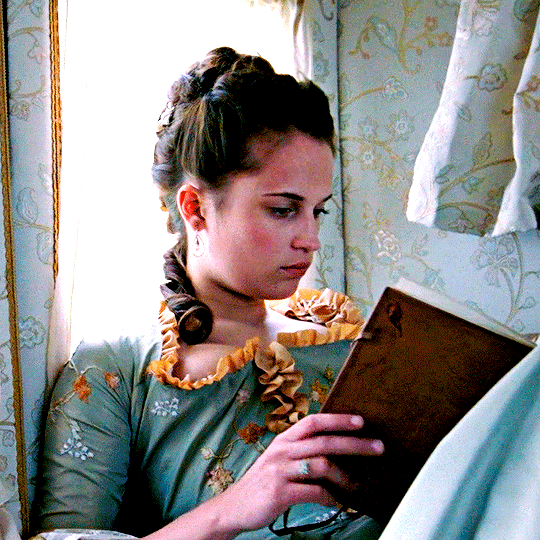
We didn’t indulge our husbands political squabbles, and my sister, Angelica, admired both of them immensely.
#ic / best of wives & best of women#abigail adams#answered#john adams#about betsey#Mary Floyd Tallmadge#women in history#benjamin tallmadge#ben tallmadge#alexander hamilton#eliza schuyler#eliza hamilton#angelica schuyler church#angelica schuyler#Eliza Schuyler Hamilton#amrev#amrev fandom#american revolution#women supporting women
4 notes
·
View notes
Text
The Hamiltons and their Dutch Reformed wedding
[Text from Religions of the United States in Practice, Volume 1].

Alexander Hamilton and Elizabeth Schuyler were married on Thursday, December 14, 1780, in the largest parlor of her parents’ Albany mansion, by a minister of the Dutch Reformed Church, as is recorded in the church registry of the Reformed Dutch Church of Albany (now First Church in Albany). Domine Eilardus Westerlo,* the second husband of Catharina Livingston Van Rensselaer (mother of Stephen Van Rensselaer III) had presided at Angelica and John Church’s wedding at the Van Rensselaer Manor house north of Albany three years prior, but it’s unknown to me if he also was the minister for the Hamilton wedding.
It’s easy to speculate that AH, at least, thought that he and Eliza would be married at Morristown that spring 1780 - it was not common to have an engagement lasting several months, and it would have made sense to get married before the campaign. Morristown had both Anglican and Presbyterian ministers. But Philip Schuyler poured cold water on that, stating in a letter that it would not be proper for them to be married at Morristown (and certainly, not to elope). In one of his letters to his fiancee AH complains that their engagement has lasted “an age,” and in another asks if she would still like to elope - it’s easy to see that he was going along with this delay to make her family happy.
If AH, who stated in 1771 that he was a member of the English Reformed Church, and then had ties through Rev. Knox to the Scotch Presbyterian Church, had mixed feelings about marrying in the Dutch Reformed tradition, it is unrecorded, although he is quoting from the Anglican marriage rite in his Oct 1780 letter to Eliza and his reference to “nuptial benediction” is from Anglicanism (I wonder if he grimaced when he read this totally non-poetic marriage rite below, compared to this one). He and Eliza’s first child, Philip, was baptized at the Reformed Dutch Church of Albany on Feb 11, 1782, with Philip’s grandparents as witnesses. And maybe AH really took the marital admonitions from this Liturgy (quoting Matthew 19) to heart [see page 3 below], as he supported folks only being allowed to divorce in the case of adultery (not for cruelty, not for abandonment), which remained NY state law until 1967.
So let’s talk cool facts about the Dutch Reformed tradition in America:
One book that every (Dutch American) colonial family was certain to possess was a kerkboekje (church book) - containing the Dutch metrical Psalter (with the Genevan tunes), the Heidelberg Catechism, and the Netherlands Liturgy - which they carried with them to church every Sunday. In more well-to-do families, every person had a kerboekje of his or her own. Because of their high birth rate, Dutch Americans were able to maintain their language and culture under the English regime for another century. Their culture was so tenacious that the French and German immigrants who later settled in the Hudson Valley adopted Dutch as their language rather than English. [Here I interject that Sojourner Truth, born into slavery in 1797 in Swartekill, NY, was a native Dutch speaker who likely never lost that accent - her “Ain’t I a Woman?” speech was translated to a Southern dialect.]
After a hundred years of English rule, however, Dutch eventually lost its place as the language of New York and New Jersey.
English language preaching was introduced in 1763, and the church book was translated to English in 1767, becoming the New York Liturgy that became standard across all English-speaking Dutch Reformed Churches in the world. (Services in Albany would stay in Dutch through most of the 1780s, although I’m certainly hoping that their wedding wasn’t in Dutch, a language that I don’t believe we have any record of AH speaking.) This language certainly doesn’t have the flourishes of the Anglican liturgy - it’s pretty appalling from a literary point of view.
We know that Dutch women enjoyed stronger inheritance rights and a more elevated status than did their English peers. In cases of Dutch-English intermarriage, the couples usually ended up Dutch Reformed.
Obviously not the Hamiltons, who after Philip would baptize their next three children in the Episcopal Church (the Anglican Church of the USA) in 1788; the Hamiltons would remain Episcopalians for generations. Angelica Schuyler Church also became Episcopalian (and is the one we actually have a contemporary record of going to church with her own and the Hamilton children, other than presumed attendance for baptisms and at the 1st inauguration of GW), which makes total sense since she married an Englishman. It also makes sense that AH would return to the religious liturgies of his youth [See my lengthy post about the Hamiltons’ religious preferences.]
Getting back to the wedding stuff - although this researcher states that marriages were usually in church, I suspect that was for the plebs. Other books cite wealthy Dutch-Americans marrying at their homes, and then the bride wearing her finest outfit to church on the Sunday following her wedding. I have never found a reference to the Schuylers as a particularly pious family, nor have I found a reference to Philip Schuyler maintaining a pew for his family at the church in Albany. His youngest daughter does not cite him as an attendant, but as someone who kept private devotions and would sometimes recite a prayer service for the household (this was not at all uncommon).
Dutch American weddings were big, community, raucous affairs, almost everyone agrees. “Complaints about carousing and excessive drunkenness were not uncommon.” Philip and Catharine likely wanted to throw such a party!
Although they clearly wanted to witness and then throw a crazy party afterwards, Elizabeth’s parents would have played no role in the wedding itself. There was no giving away of the bride as there is in the Anglican rite, where the father (usually) affirms that he is giving “this woman to be married to this man.” Instead, this was a ceremony for two grown sober adults, choosing to live in the Married State, the Institution of God [see below].
Anyway, getting to the real point: below are my not-good photos of the form of marriage of the New York Liturgy. Considering the dates of this liturgy, this is likely what was read to and said by the Hamiltons at their wedding. This has some typical Reformed catechesis - “God will...judge and punish Whoremongers and Adulterers,” “Resist all Wickedness,” “Believe these Words of Christ, and be certain and assured, that our Lord God had joined you together in this holy State. You are therefore to receive, whatever befalls you therein with Patience and Thanksgiving, as from the Hand of God, and thus all Things will turn to your Advantage and Salvation.” It even starts off with such a great tone: “Whereas Married Persons are generally, by Reason of Sin, subject to many Troubles and Afflictions...”
A line that is unfamiliar to me from other Christian marriage rites: “[to the husband]..you are to labor diligently and faithfully, in the calling wherein God hath set you, that you may maintain your Household honestly, and likewise have something to give to the poor” [my emphasis]. And I am unaware of any other major Christian marriage rite that so blatantly states St. Paul’s admonition to get married to avoid fornication. Calvinism can be so grim (my apologies to any Calvinists reading this, but not really).

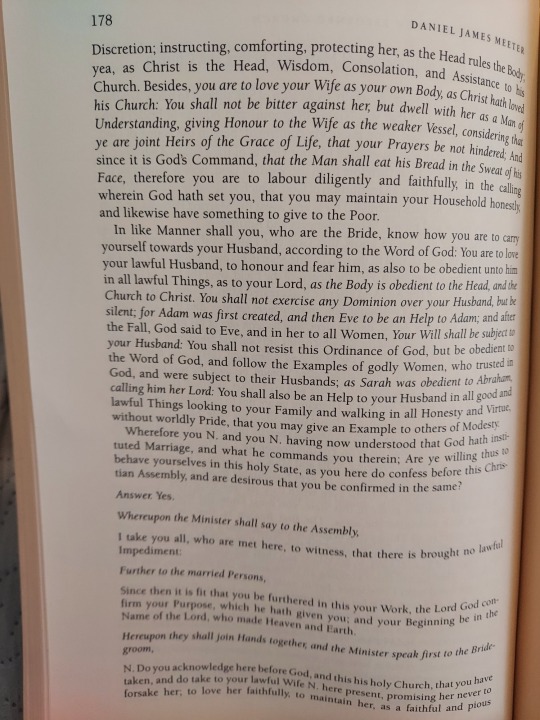
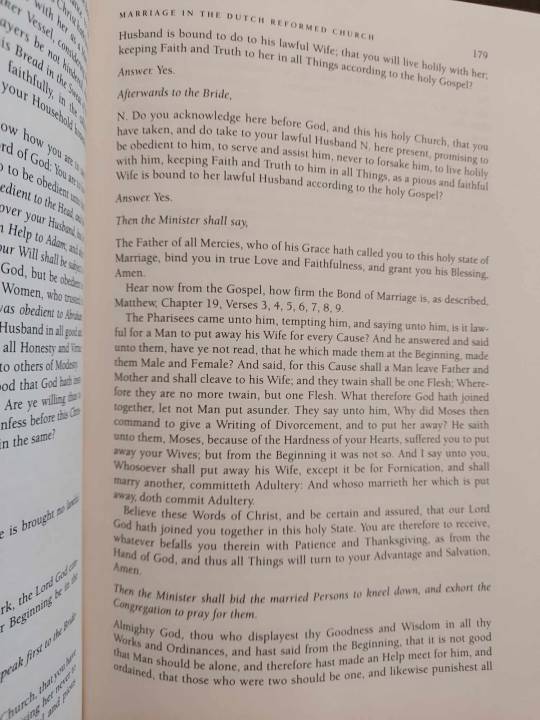
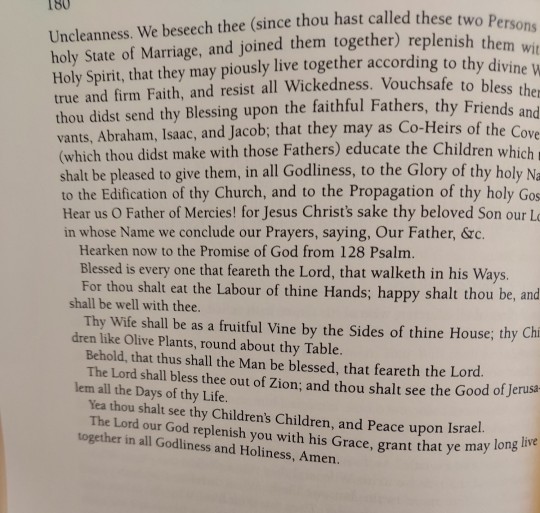
If you’ve made it this far, perhaps you’d also like to read about Dutch epithalamia. Epithalamia were wedding poems/songs - more specifically, for the marital bed/consummation - that were popular all the way from the classical period (they likely arose from the very elaborate wedding rituals of the past ancient Greeks/Balkan peoples) but largely disappeared in the late 19th century and have now been forgotten. There was quite a lot of literature/pamphlets/instruction manuals(?) about how to approach one’s wedding night; epithalamia was the far more naughty/raucous cousin to this literature. But I don’t think anyone really took some of this literature seriously:
...The chapter titled ‘Bruyt’ (Bride) highlights how respectable Protestants wished newly-weds the joys of a chaste Christian marriage and advocated the creation of a devotional atmosphere before becoming one flesh. Cats’s instructions about the wedding day cover various topics, such as the behaviour of the wedding guests, the bride and groom’s mental preparation, orchestrating the mood of the wedding banquet, the symbolic meaning of the bride’s crown, conduct at the nuptial bed, and pious conversation between bride and groom.
* h/t to Dr. Tom Cutterham for this, who is also working on a biography (and working to get a publisher for said biography) on Angelica Schuyler Church “which explores the processes of bourgeois class-formation in this period through the lens of her ideas, exploits, and transatlantic voyages.” He’s already released some of his research/early thoughts on “The Labor of Bourgeois Sexuality” during this period, or listen to the podcast, in which he reads from a section of his biography on ASC’s social climbing to get her husband into Parliament, including a ‘risque’ section of a letter from Baron von Steuben to Church.
#Alexander Hamilton#Elizabeth Schuyler Hamilton#Dutch Reformed Church#18th century marriage#Angelica Schuyler Church
8 notes
·
View notes
Text
#look at what cicero and del have done to me 😭😭😭#amrev#john laurens#harry laurens#jemmy laurens#patsy laurens#polly laurens#philip hamilton#angelica hamilton#james alexander hamilton#alexander hamilton jr.#john church hamilton#eliza hamilton holly#william s. hamilton#philip hamilton ii#polls
8 notes
·
View notes
Note
Favorite Hamkid? :]
i can’t believe you’d make me choose
okay i’ll narrow it down. alexander jr is my least favorite, i feel completely neutral about james and phil 2 idk why, and john church is ALRIGHT. angelica has my whole heart, but idk much about her personality, same with holly.
so that leaves phil 1 and will, and man. i love will and i think he’s the most interesting of the hamkids, but philip is philip!! i include him in everything!!!
so ig i have to say philip, but i love them all, even if alex jr was a bitch
#alexander hamilton#alexander hamilton jr#james alexander hamilton#john church hamilton#philip hamilton jr#angelica hamilton#eliza hamilton holly#philip hamilton#william stephen hamilton
9 notes
·
View notes
Text
Alexander Hamilton to Angelica Church, New York, [November 8, 1789]

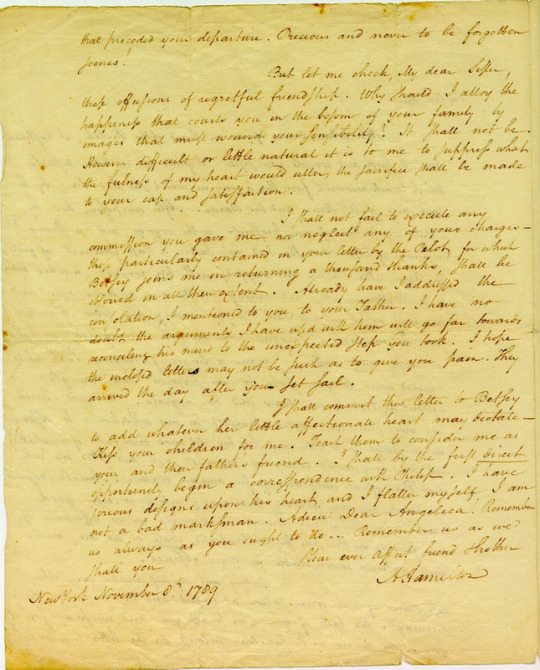
My Dear Sister
After taking leave of you on board of the Packet, I hastened home to sooth and console your sister. I found her in bitter distress; though much recovered from the agony, in which she had been, by the kind cares of Mrs. Bruce and the Baron. After composing her by a flattering picture of your prospects for the voyage, and a strong infusion of hope, that she had not taken a last farewell of you; The Baron little Phillip and myself, with her consent, walked down to the Battery; where with aching hearts and anxious eyes we saw your vessel, in full sail, swiftly bearing our loved friend from our embraces. Imagine what we felt. We gazed, we sighed, we wept; and casting “many a lingering longing look behind” returned home to give scope to our sorrows, and mingle without restraint our tears and our regrets. The good Baron has more than ever rivetted himself in my affection: to observe his unaffected solicitude and see his old eyes brimful of sympathy had something in it that won my whole soul and filled me with more than usual complacency for human nature. Amiable Angelica! how much you are formed to endear yourself to every good heart! How deeply you have rooted yourself in the affections of your friends on this side the Atlantic! Some of us are and must continue inconsolable for your absence.
Betsey and myself make you the last theme of our conversation at night and the first in the morning. We talk of you; we praise you and we pray for you. We dwell with peculiar interest on the little incidents that preceded your departure. Precious and never to be forgotten scenes!
But let me check, My dear Sister, these effusions of regretful friendship. Why should I alloy the happiness that courts you in the bosom of your family by images that must wound your sensibility? It shall not be. However difficult, or little natural it is to me to suppress what the fulness of my heart would utter, the sacrifice shall be made to your ease and satisfaction.
I shall not fail to execute any commission you gave me nor neglect any of your charges. Those particularly contained in your letter by the Pilot, for which Betsey joins me in returning a thousand thanks, shall be observed in all their extent. Already have I addressed the consolation, I mentioned to you, to your Father. I have no doubt the arguments I have used with him will go far towards reconciling his mind to the unexpected step you took. I hope the inclosed letters may not be such as to give you pain. They arrived the day after you set sail.
I shall commit this letter to Betsey to add whatever her little affectionate heart may dictate. Kiss your children for me. Teach them to consider me as your and their father’s friend. I shall by the first direct opportunity begin a correspondence with Philip. I have serious designs upon his heart and I flatter myself I am not a bad marksman. Adieu Dear Angelica! Remember us always as you ought to do—Remember us as we shall you
Your ever Affect friend & brother
A Hamilton
New York November 8th. 1789
#alexander hamilton#angelica church#angelica schuyler#hamilton correspondence#church correspondence#1789
9 notes
·
View notes